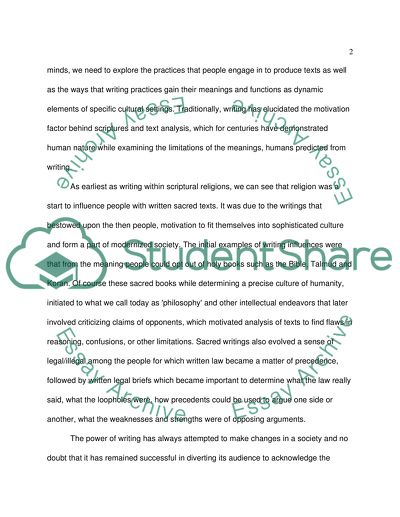Cite this document
(“How writing influences and changes a society Essay”, n.d.)
Retrieved from https://studentshare.org/social-science/1509836-how-writing-influences-and-changes-a-society
Retrieved from https://studentshare.org/social-science/1509836-how-writing-influences-and-changes-a-society
(How Writing Influences and Changes a Society Essay)
https://studentshare.org/social-science/1509836-how-writing-influences-and-changes-a-society.
https://studentshare.org/social-science/1509836-how-writing-influences-and-changes-a-society.
“How Writing Influences and Changes a Society Essay”, n.d. https://studentshare.org/social-science/1509836-how-writing-influences-and-changes-a-society.


